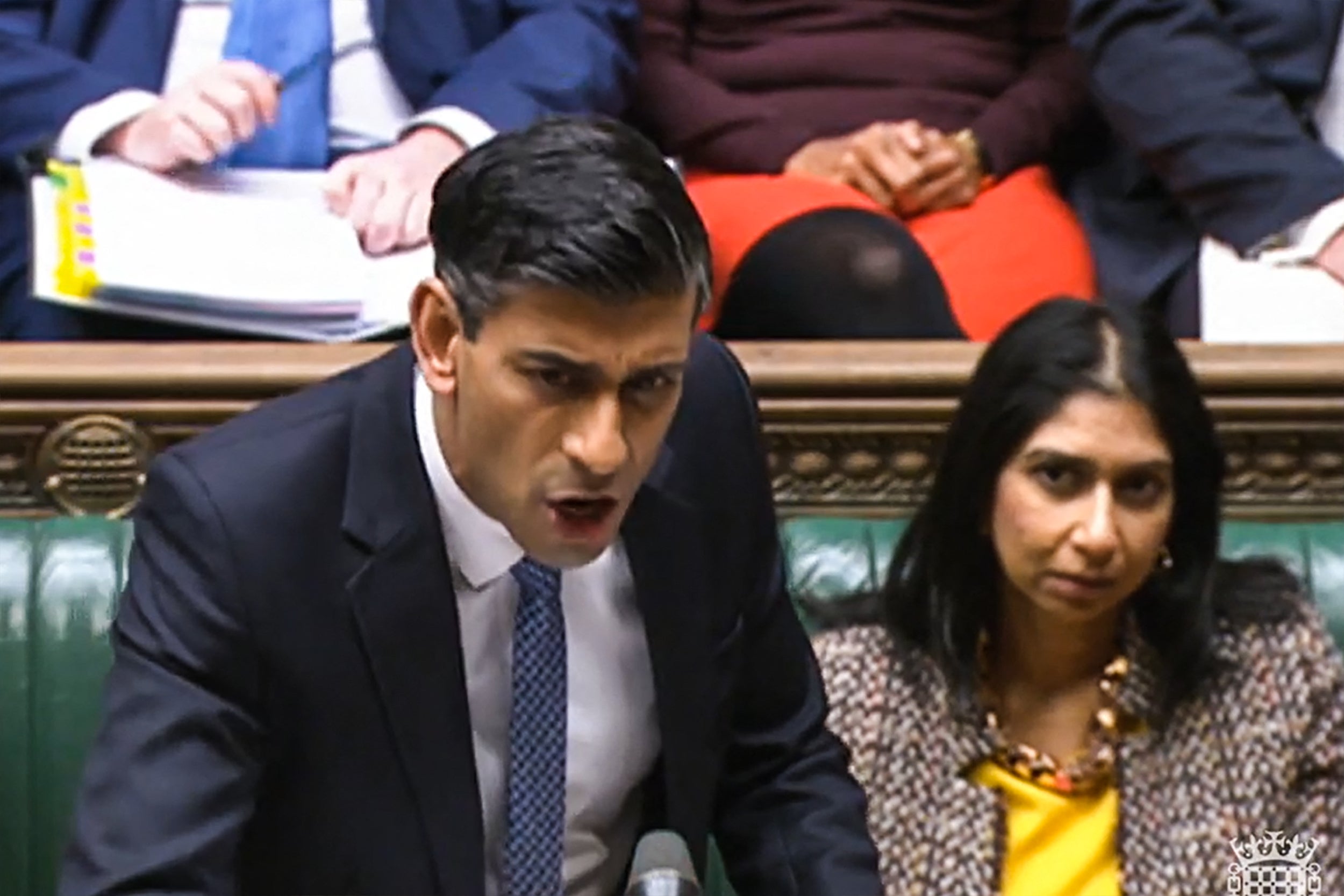One of the Conservative whips must have been tempted to dial 999 for Rishi Sunak
Keir Starmer asked a series of simple but effective questions about the NHS at Prime Minister’s Questions, writes John Rentoul


One of the Conservative whips must have been tempted to dial 999. The patient had had a catastrophic accident, having walked into a wall of criticism with only a ring binder for protection. He was still breathing, but he was suffering from cuts and bruises all over, and his political career needed life-saving emergency care, the whip would have explained to the operator if they ever got through.
Keir Starmer had asked a series of simple but effective questions about how long people have to wait for ambulances. He provided the answers, too. If someone in Peterborough, a marginal constituency, had dialled 999 with a suspected heart attack at 12.03pm, when the Labour leader started asking his questions, they would, on average, wait until 2.10pm. In Plymouth, home of two marginals, it would take half an hour longer. “These are not worst-case scenarios,” said Starmer, “just the average wait.”
Rishi Sunak mounted a tenacious defence, but the only substance was to say that the NHS was suffering from the aftershocks of coronavirus and a bad wave of flu this winter, while the government was doing what it could. The rest was party-political point-scoring, lacking in human sympathy.
Why wouldn’t Labour support the government’s “minimum safety legislation”, Sunak demanded to know. It’s worse in Labour-run Wales, the prime minister said. But he didn’t have any heartrending cases from Cardiff to parade in the Commons, whereas Starmer had come armed with the death of 26-year-old Stephanie while waiting for an ambulance called by her mother. “As a dad I can’t even fathom that pain,” he said.
When Starmer did politics, he did it from the safety of the high moral ground. He asked Sunak about the target that was met by the last Labour government: “When will he get back to that 18-minute wait?”
Sunak allowed his frustration to show. He accused Starmer of “playing political games” and asked if the Labour leader were “confident that there is no one suffering in Wales”. Of course Starmer was playing political games, but he was doing it better than Sunak was, mainly because Starmer isn’t the prime minister of a government presiding over an NHS in crisis. When Starmer accused Sunak of the same old tactics – “deflect, blame others, never take responsibility” – he was only describing what had just happened.
Sunak’s only workable defence is “I’m doing my best”, which is no use to a political leader 20 points behind in the opinion polls. Wales is no use to him either, although it is undoubtedly true that the problems are just as bad there, and in Scotland, and in Northern Ireland. It is also true that other countries have their problems, but none of that helps a prime minister who has walked into a wall of trouble.
As for Sunak’s anti-strike bill, that will offer flimsy protection only for as long as it hasn’t become law. When the “minimum safety legislation” is passed, and ambulance times don’t improve, what then? All Sunak can do is to hope that the worst of the crisis will have passed, and that at least some of the indicators will be heading back in the right direction.
Sunak fared no better in his counterattack, working himself up to an over-rehearsed attack on Starmer’s changes of policy on nationalisation and the EU, including on free movement. Sir Lindsay Hoyle, the speaker, interrupted him as he built up to the less-than-devastating line that Starmer supported “not only the free movement of people but also the free movement of principles”.
Starmer blinked mildly, as if he had been savaged by a dead gerbil, safe in the knowledge that public opinion is on his side. Do people think that the state of the NHS is all Sunak’s fault? No. But do they believe that a Labour government would do better? Yes, they do.
Starmer’s most effective lines were when he invited MPs to put themselves in the position of someone suffering a heart attack, having called an ambulance, feeling increasingly dizzy, and “listening to the clock tick”.
Sunak is in a similarly desperate situation, listening to the clock tick as he waits for the arrival of better news from the NHS frontline. Unless the NHS crisis is significantly better next winter, Conservative hopes at the next election will be a casualty.



Join our commenting forum
Join thought-provoking conversations, follow other Independent readers and see their replies
Comments